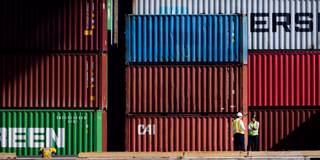OnPoint Subscriber Exclusive
The Big Picture brings together a range of PS commentaries to give readers a comprehensive understanding of topics in the news – and the deeper issues driving the news. The Big Question features concise contributor analysis and predictions on timely topics.

Supply-Shock Therapy
Widespread product shortages around the world are making it increasingly clear that the COVID-19 crisis has damaged global supply chains more severely than previously thought. How can firms and policymakers best address the problem in both the short and long term, and which countries stand to benefit?
In this Big Picture, the University of Cambridge’s Diane Coyle compares today’s supply shocks to the 2008 global financial crisis, and explains why a similarly bold policy response may be needed. In a similar vein, Dalia Marin of the Technical University of Munich argues that advanced-economy governments should help to provide firms with more potential alternative suppliers. But, as Richard Haass of the Council on Foreign Relations notes, a targeted and limited industrial policy aimed at building resilience should not become a cover for protectionism.
Supply-chain disruptions do not affect only rich countries, of course. Jonathan Woetzel of McKinsey & Company and Mekala Krishnan of the McKinsey Global Institute show why export-oriented emerging economies must now focus on boosting resilience in order to maintain their positions in global value chains – or even capture a bigger share of global production. On that score, Keun Lee of Seoul National University, the chief economic adviser to South Korea’s president, thinks that South Korea and Vietnam in particular stand to benefit from the accelerating exodus of manufacturing from China, and should thus take steps to encourage relocation and reshoring.